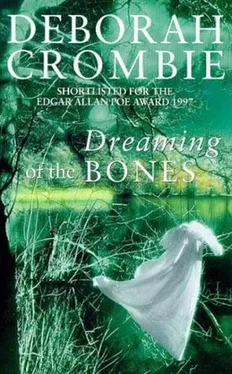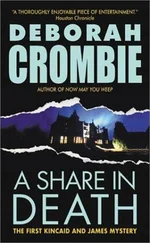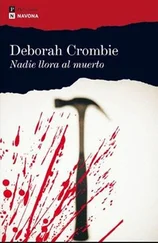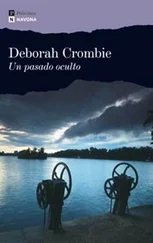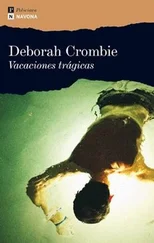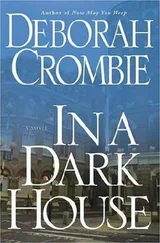sucked anger away like breath
stolen from the mouths of babes
“In the beginning was the word
but it was not ours
they left us only the
whispers of our mingled blood .
“And yet we participate willingly
in the conspiracy of our loss
passing this mute legacy
our gift to our daughters.”
Gemma looked up at him as she finished. Searching his face, she shook her head. “It doesn’t mean anything to you, does it? But I feel it-here.” She pressed her fist to the center of her chest. “It’s about women not speaking up, not having voices, and yet we teach our daughters the same behavior. Do you see?”
“I think so. But what has that to do-”
“Wait. As the poems go on the theme seems to become more specific, until you get to this one, the last. Listen. It’s called ‘Awaiting Electra.’
Ancient laughter stirs in the deep
heart of the dimly remembered green
wood by the close and
sacrificial Pool.
The poets wait in uneasy slumber
for her coming
their feet whisper on the leaf-thick
path and the old pulse
quickens in the dappled light.
Silver slides over the
bell of her hair over
the innocent landscape of
her skin and she smiles as
they ease her down into
the dark water waiting.
She feels the wild springing freedom
then the old fear, the truth of it
sudden and piercing as a child’s rape.
Lost to years, she lies forgotten
betrayed in the mallow-tangles
of the still black summer.
Who will speak for her now? Truth
unmourned, untold in the ice heart
of our memory?”
Gemma’s reading had grown more halting as she progressed through the poem, and now she stared at the page until the print blurred and the words began to shift and scramble. It was odd, she thought as she noticed the hair standing up on her forearms, that the words made her feel things which went beyond words. But there was something more here even than that, she was sure of it, if she could just sort it out… She looked up at Kincaid. “She’s telling a story, isn’t she?”
“I suppose you could say all poems tell stories; they’re a way of assimilating our experiences.” He tapped the page. “This one is probably a metaphor for coming of age, the loss of virginity-”
“No, no”-Gemma shook her head-“I mean, she’s telling a story about something that really happened. The beginning reminds me of the things I’ve been reading about Rupert Brooke and his friends swimming naked in Byron’s Pool-the poets’ pool, do you see? There’s this feeling of tingling anticipation about it-but then something happens, something dark and unexpected-”
“Gemma, don’t you think that’s a bit far-fetched?”
“Is it? Lydia is dead. Vic is dead. And someone wanted these poems. Just because Nathan had them doesn’t mean that Vic’s killer wasn’t searching for them.” She stared at him, and after a moment he nodded.
“Go on, then.”
Slowly, speaking aloud as she thought, Gemma said, “Strip away the images. What does she tell us happens? Think like a policeman-find the bare bones.”
Kincaid frowned and ran a hand through his hair. “There’s a rape. A child’s rape.” He slid the page across the table, turning it his way up. “But she doesn’t actually say-”
“She only suggests it. But she tells us that a girl goes to a pool in the woods where the poets are waiting for her.” Gemma retrieved the page. “She’s naked-”
“Virginal-”
“They take her into the pool-”
“Rape her-”
“She’s lost, betrayed. What does Lydia mean?” Gemma asked as she skimmed the poem once more. “’Lost… in the mallow-tangles of the still black summer’?”
“Mallow grows round ponds,” said Kincaid. “Might she have drowned?”
Nodding, Gemma said, “But what has it to do with Lydia? Why is the girl waiting for Electra?”
“Who’s waiting for Electra?” asked Hazel, coming into the kitchen. She’d been settling the children in the sitting room with a video so the adults could have their dinner in peace. “It sounds like a play.”
“It’s the title of a poem,” said Gemma. “Who exactly was she, anyway? What we learned at school has gone a bit fuzzy.”
Hazel lifted the lid from a pot of chicken soup and gave it a stir. “Electra was the daughter of Agamemnon and Clytemnestra, who urged her brother Orestes to kill their mother in revenge for the murder of their father.” Tasting the soup, she said, “Just about ready,” then added, “I guess you could say that Electra was the voice of vengeance, although she herself was powerless to act.”
“The voice of vengeance,” Gemma repeated, rotating the page once more. “You see? It’s about women’s silence again, about the need to speak up… Does Lydia see herself as Electra here, telling the truth?” She closed her eyes for a moment and pinched her forehead. “What if the poets in the poem aren’t Rupert Brooke and his friends but Lydia’s poets? Adam, Nathan, Darcy, and Daphne? Do you remember what Daphne said this morning, about Lydia and Morgan? ‘Something happened that summer and she was never the same afterwards.’ It’s all here, the references to the long-ago summer. And if Lydia is Electra, who is the girl?”
“How can you be sure Lydia’s not talking about herself?” asked Kincaid, still sounding skeptical as he spun the page back towards him. “What if it was Lydia who was raped? Surely that’s trauma enough to make one change one’s patterns.”
But Gemma felt like a terrier with a rat in its teeth-she knew she’d caught hold of the truth, and she meant to shake it until it gave itself up to her. “No. If the poets are Lydia’s poets, it couldn’t have been that-she’d slept with them all already. But what else didn’t they want anyone to know? Something Alec Byrne said today made me think…” Frowning, she searched her memory. “A missing child… he was looking for a missing child. But there was a girl who disappeared a long time ago…” She blinked as the scrap of conversation in Ralph Peregrine’s office came back to her. “The daughter of Margery Lester’s friend. What was her name? Hope? Charity?”
“Verity,” said Kincaid, and she heard the sudden spike of excitement in his voice. “Verity Whitecliff. The daughter of Henry Whitecliff, the former head of the English Faculty.”
Spoon still in hand, Hazel had come to sit with them, and now she reached out and rotated the page with the tip of her finger. “The poem talks about ‘Truth unmourned, untold…’ What if Truth is a person here, as well as an abstract quality? Verity is an old word for truth.”
Kincaid said slowly, “What if Verity Whitecliff didn’t run away, after all? What if she was murdered?” He took his notebook from his pocket and entered a number into his cell phone.
“Hullo, Laura? It’s Duncan again. I’ve a question for you. Can you tell me exactly when Verity Whitecliff disappeared?” He listened for a moment, then said, “Right. I’ll tell you what it’s all about when I know more, and in the meantime, I’d rather you didn’t mention this to anyone. Right. Thanks.” Disconnecting, he looked from Hazel to Gemma. “Verity Whitecliff slipped out of her house on Midsummer’s Eve 1963, and was never seen again. She was wearing a summer dress, and she took nothing with her. She was fifteen years old.”
Читать дальше
